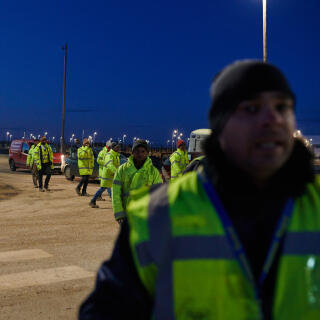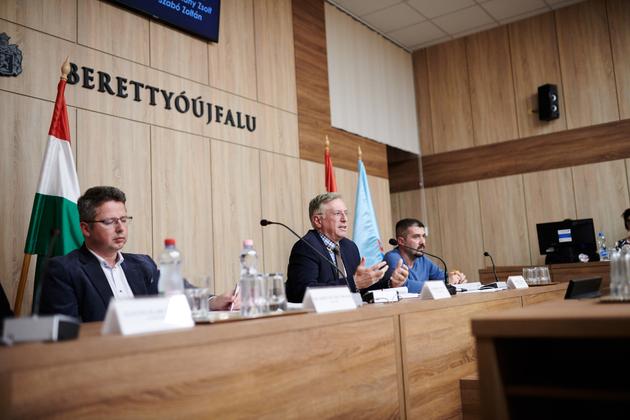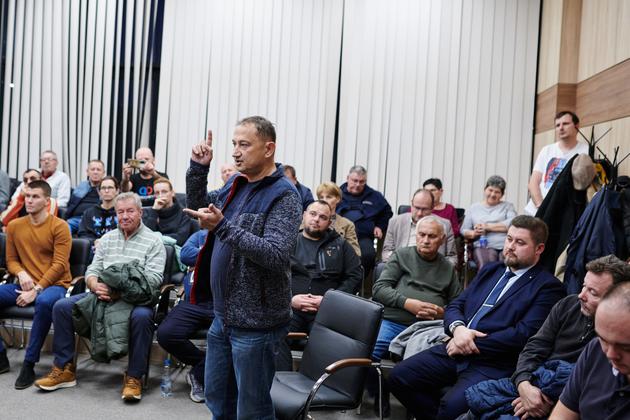


In a Hungary devoid of immigrants, the new arrival of foreign workers raises tensions
FeatureIn the east of the country, the huge construction site of a BMW factory has led to the arrival of workers from Asia, or 'guests,' in the terminology of Viktor Orbán's government. In this region, however, the population is fired up by the ruling party's anti-immigrant rhetoric.
On Wednesday, November 15, a few dozen residents huddled together in the small, overheated council chamber of Berettyóújfalu, a town of 14,000 inhabitants in eastern Hungary. The situation is serious, according to the mayor, István Muraközi, who called an urgent public meeting to discuss "the problem of the 150 Indian workers who turned up by surprise" in October in this typical rural Hungarian town, where immigrants, especially non-Europeans, have never been seen.
"That's already 1% of our population," said this 50-something with the look of a peaceful civil servant, with his checked shirt and tidy hair. Elected by Fidesz – the nationalist, anti-immigrant party of Prime Minister Viktor Orbán – he promised: "It wasn't the town hall that brought in" these young men. Housed in a dilapidated former boarding school and a drab vacation village located by a pond, they are employed on the site of the future BMW electric car factory, which is due to open in 2025 in Debrecen, Hungary's second-largest city, a 45-minute bus ride away.

"I have no problem with bringing in guest workers," said the mayor, who was careful not to criticize Orbán. After years of anti-immigration messages, Orbán has done something of a U-turn. Since 2022, the government has been letting in tens of thousands of Asian workers to fill the glaring labor shortage in his country, which is in full demographic decline and where unemployment is below 5%. "But I don't agree with having guest-worker hostels in our residential neighborhoods or next to our hospitals or schools," he said, deliberately using the government's terminology, which carefully avoids the word "immigrant" in favor of "guest."

"Not to mention that they have five-year leases and we have no idea what country, what religion, what culture they're coming from. This poses a problem for security and our healthcare system." In the room, a 50-something man who said he barely gets by on disability benefits jumped up: "Orbán promised on TV that he wouldn't let foreigners take jobs away from Hungarians, and now I'm afraid my grandchildren will be forced to learn Filipino." "Fidesz has been telling us for 13 years that we shouldn't bring in immigrants, and now they're the ones bringing them in. It's completely hypocritical!" said a businessman.
In March 2023, the nationalist leader announced to Hungarians that their country would need to bring in "500,000 new workers in the next year or two." This figure, considerable for a country with a population of just 9.7 million, was intended to satisfy the government's desire for all-out industrial development, particularly in the field of electric cars. But while Hungarians have become accustomed to seeing Thai nurses in retirement homes and Filipino drivers on Budapest buses, the atmosphere in the Debrecen region has become more tense in recent months.
You have 75% of this article left to read. The rest is for subscribers only.
